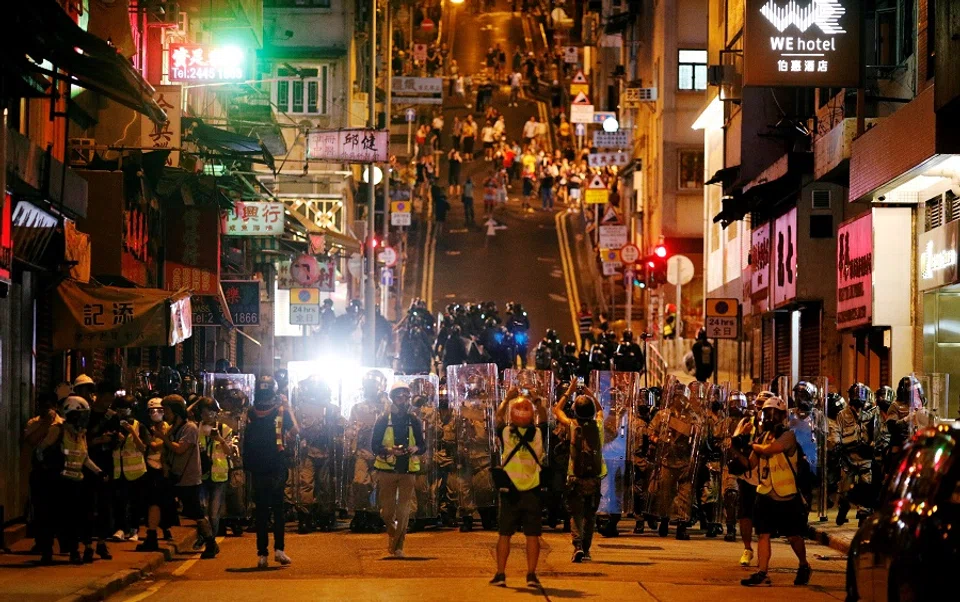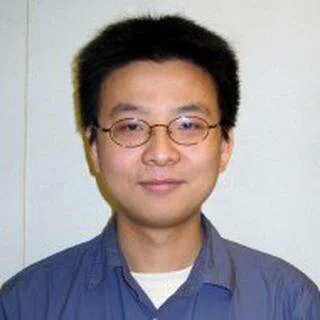Will Norway think twice about awarding the Nobel Peace Prize to Hong Kong activists?
The last time a Nobel Peace Prize was given to a Chinese dissident, China-Norway relations took a great tumble. This year's nominees include Hong Kong's "Father of Democracy", Martin Lee. Tai Hing Shing takes a look at his nomination and that of other Hong Kong activists. How likely are they to win and how high exactly are the stakes involved?

Martin Lee, Hong Kong's "Father of Democracy" and founding chairman of the Democratic Party, has recently been nominated by two Norwegian parliamentarians for the Nobel Peace Prize.*
But an academic this paper interviewed thinks that Lee is no longer as influential as before in the social movement circle, especially among the younger generation, and thus has little chance of winning the award.
Hong Kong Free Press reported yesterday that the two parliamentarians who nominated Lee were Mathilde Tybring-Gjedde and Peter Frolich of the Norwegian Conservative Party. They said in a statement that they hoped their move would "be a source of inspiration for the pro-democracy movement in Hong Kong and advocates for freedom around the world".

According to the report, Tybring-Gjedde noted that in the past 40 years, Lee has pursued every avenue available to him to try and secure the freedom and safety of the Hong Kong people and that he has "devoted his life to the cause". The report further quoted Frolich's remarks that Lee had "fought for a democratic constitution in Hong Kong before and after the 1997 handover" and that he had "worked peacefully for democratic institutions, free elections by universal suffrage, and political and civil rights, even in the face of mounting pressure from mainland China." Frolich added that Lee was an inspiration to those who sought democratic development and transition in Hong Kong and beyond.
However, Lee has always emphasised that he is a firm defender of the "one country, two systems" principle and opposes Hong Kong independence...
Hong Kong's 'Father of Democracy'
Apart from being the founder of the Democratic Party, 82-year-old Lee is a long-time member of the Legislative Council of Hong Kong. He was a member of the Hong Kong Basic Law Drafting Committee and has advocated Hong Kong democracy for nearly four decades. He incurred the ire of Beijing numerous times for his beliefs and ended up with the moniker of Hong Kong's "Father of Democracy". Lee is also an experienced barrister.
However, Lee has always emphasised that he is a firm defender of the "one country, two systems" principle and opposes Hong Kong independence, calling the laam caau (揽炒, meaning mutual destruction) philosophy of the Hong Kong youths naive. Following the escalation of the 2019-20 Hong Kong protests, he was harshly criticised on Hong Kong social media platforms.

Last April, Lee was arrested for participating in unlawful assemblies. After his release on bail, he said that he did not regret his actions and that he was proud to walk the "democracy road with Hong Kong's excellent young people".
High stakes
The Nobel Committee announces its winners in October every year. Personalities and groups related to the protests have been nominated multiple times since the outbreak of the protests in 2019. Of note is the nomination of the people of Hong Kong last year by Norwegian parliamentarians which drew stern warnings from Chinese Foreign Minister Wang Yi.
Additionally, last November, Britain's All-Party Parliamentary Group on Hong Kong also nominated "Grandma Wong" (Alexandra Wong), an elderly protester frequently seen waving a British flag at protests, for the 2021 Nobel Peace Prize. Hong Kong Free Press was also nominated just before the deadline on 31 January.

Lau Siu-kai, vice president of the Chinese Association of Hong Kong & Macau Studies, told Zaobao in an interview that the bar set for Nobel Peace Prize nominees is not high. Furthermore, there were instances in the past where Western politicians or organisations nominated anti-China activists to achieve their political goals. While Lee's nomination is not surprising, Lee is no longer as influential as he was before in Hong Kong's political arena, especially among the younger generation. Thus Lau does not think that Lee has a high chance of winning the prize.
Lau also noted that the Nobel Committee awarded Chinese dissident Liu Xiaobo with the peace prize in 2010, after which China-Norway relations took a nosedive.
"... the Western economy has been badly hit as a result of the pandemic and needs financial support from China, I believe that the Norwegian government will not make the same mistake twice." - Lau Siu-kai, vice president, Chinese Association of Hong Kong & Macau Studies
Negotiations for a bilateral trade deal were "postponed indefinitely" (only revived much later in 2017), and China had even restricted the import of Norwegian salmon and other products. It was not until 2016 that both countries announced that bilateral relations would be normalised. Having learnt their lesson, the Norwegian government would most likely intervene in the situation if it finds that the Nobel Committee wants to award Lee with the peace prize.
Lau said, "The Norwegian government was already wary of China a decade ago when the latter was not as powerful as it is now. A decade later, China has become significantly stronger. Coupled with the fact that the Western economy has been badly hit as a result of the pandemic and needs financial support from China, I believe that the Norwegian government will not make the same mistake twice."
Editor's Note:
*A bipartisan group of US congressmen has also nominated the "Hong Kong pro-democracy movement" for the Nobel Peace Prize via a letter sent to the Nobel prize committee. According to a Reuters report, the point was made that "a number of democracy advocates are already in jail, some in exile, and many more awaiting trials where they are expected to be convicted and sentenced". Therefore, the prize would be a way to "honour their bravery and determination that have inspired the world".
Related: Hong Kongers moving to Taiwan: Temporary haven or permanent home? | Governing Hong Kong: Beijing needs to tread carefully with the national security law | Every man for himself as Hong Kong's opposition caves under weight of national security law | Will it be 'one country, one system' for Hong Kong?



![[Photos] Fact versus fiction: The portrayal of WWII anti-Japanese martyrs in Taiwan](https://cassette.sphdigital.com.sg/image/thinkchina/3494f8bd481870f7c65b881fd21a3fd733f573f23232376e39c532a2c7593cbc)

